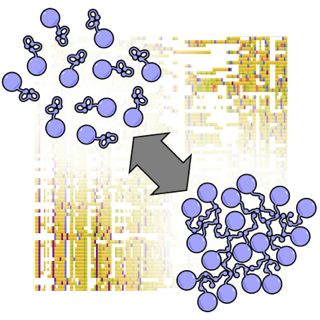
Project
Big Question: Evolving adaptive protein assembly

Principal Investigator: D. Allan Drummond, Biochemistry & Molecular Biology, Human Genetics
Funding Type: Seed
Focus Area: Complexity, Information
Big Idea: This work will fundamentally alter our understanding of how protein self-assembly is encoded in protein sequences, and will constitute a major step forward in understanding how a precise complex system evolves and coevolves. Based on the enormous success of structural biology, we think of functional protein assemblies as being highly ordered and specific. Protein components have amino-acid sequences which evolve under tight constraints—little variation in length, preserving the sequential order of amino acids—to fold into structured subunits that assemble in a puzzle-like manner. The central technique used to analyze evolution is a sequence alignment across species. We have found that functional protein assemblies are formed in many cases using protein sequences that evolve under a very different set of constraints. Over evolutionary time, these so-called low-complexity regions (LCRs) vary widely in length and amino-acid ordering, but show strong constraints on composition, which varies in a periodic way across sequences. These sequences are unalignable; attempts at alignment produce nonsense. Yet their evolution mirrors their function in assembly formation, linking many molecules together using individually weak connections.
Check out other funded projects